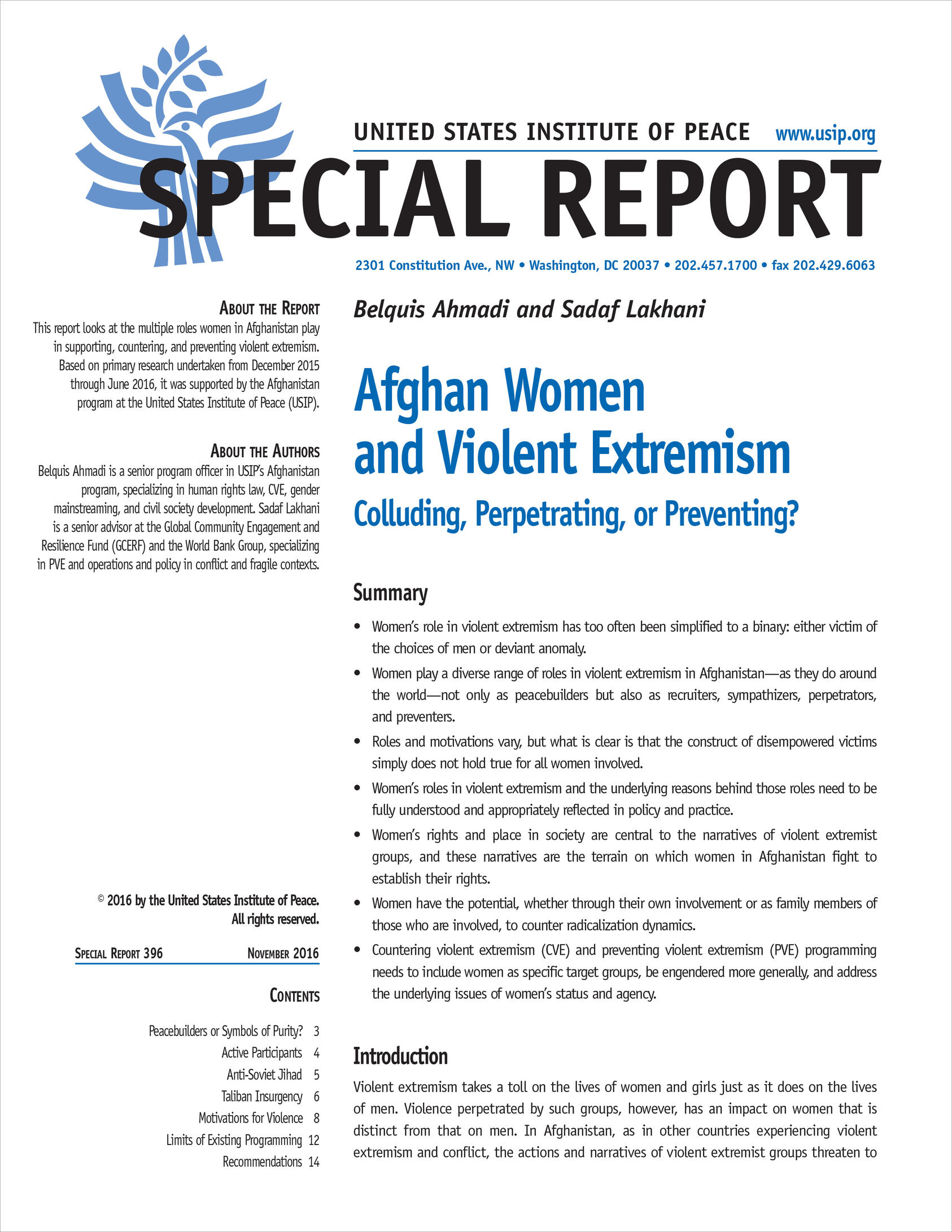Colluding, Perpetrating or Preventing?
In Afghanistan, the actions and narratives of violent extremist groups threaten to roll back many of the gains and hard-won rights of women over the last fifteen years. Women have long been cast in a binary light—as either disempowered victims or deviant anomalies—but in fact are involved in a wide range of activities, from peacebuilding to recruiting, sympathizing, perpetrating, and preventing violent extremism. Drawing on more than one hundred interviews in the field in Afghanistan, this report delves into the roles women play in the context of violent extremism. A deeper understanding of these roles and the reasons behind them, the report asserts, is critical to effective policy and programming.
Summary
- Women’s role in violent extremism has too often been simplified to a binary: either victim of the choices of men or deviant anomaly.
- Women play a diverse range of roles in violent extremism in Afghanistan—as they do around the world—not only as peacebuilders but also as recruiters, sympathizers, perpetrators, and preventers.
- Roles and motivations vary, but what is clear is that the construct of disempowered victims simply does not hold true for all women involved.
- Women’s roles in violent extremism and the underlying reasons behind those roles need to be fully understood and appropriately reflected in policy and practice.
- Women’s rights and place in society are central to the narratives of violent extremist groups, and these narratives are the terrain on which women in Afghanistan fight to establish their rights.
- Women have the potential, whether through their own involvement or as family members of those who are involved, to counter radicalization dynamics.
- Countering violent extremism (CVE) and preventing violent extremism (PVE) programming needs to include women as specific target groups, be engendered more generally, and address the underlying issues of women’s status and agency.
About the Report
This report looks at the multiple roles women in Afghanistan play in supporting, countering, and preventing violent extremism. Based on primary research undertaken from December 2015 through June 2016, it was supported by the Afghanistan program at the United States Institute of Peace (USIP).
About the Authors
Belquis Ahmadi is a senior program officer in USIP’s Afghanistan program, specializing in human rights law, CVE, gender mainstreaming, and civil society development. Sadaf Lakhani is a senior advisor at the Global Community Engagement and Resilience Fund (GCERF) and the World Bank Group, specializing in PVE and operations and policy in conflict and fragile contexts.
